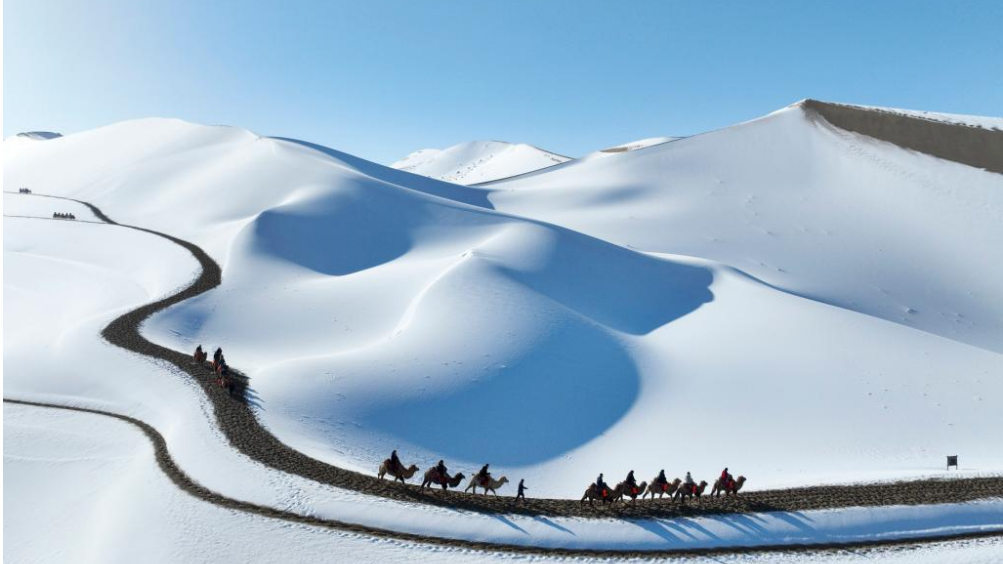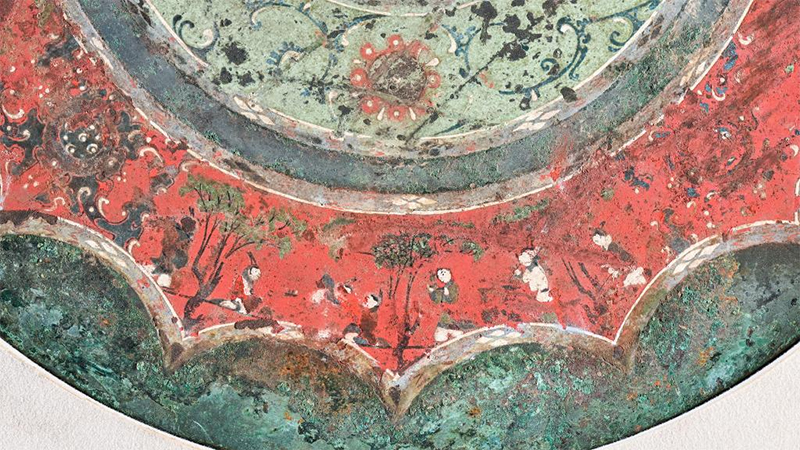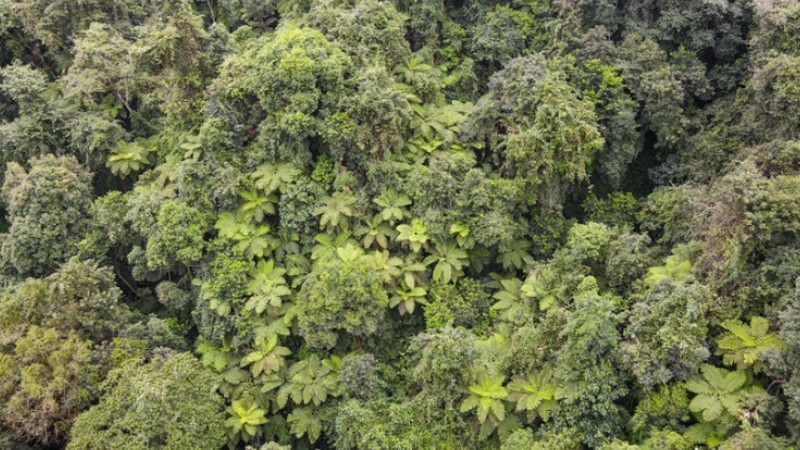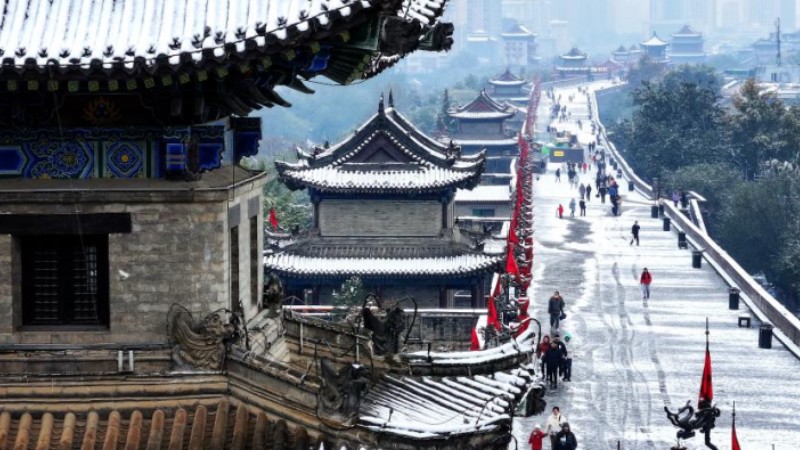Explainer: Xi's vision of future APEC development
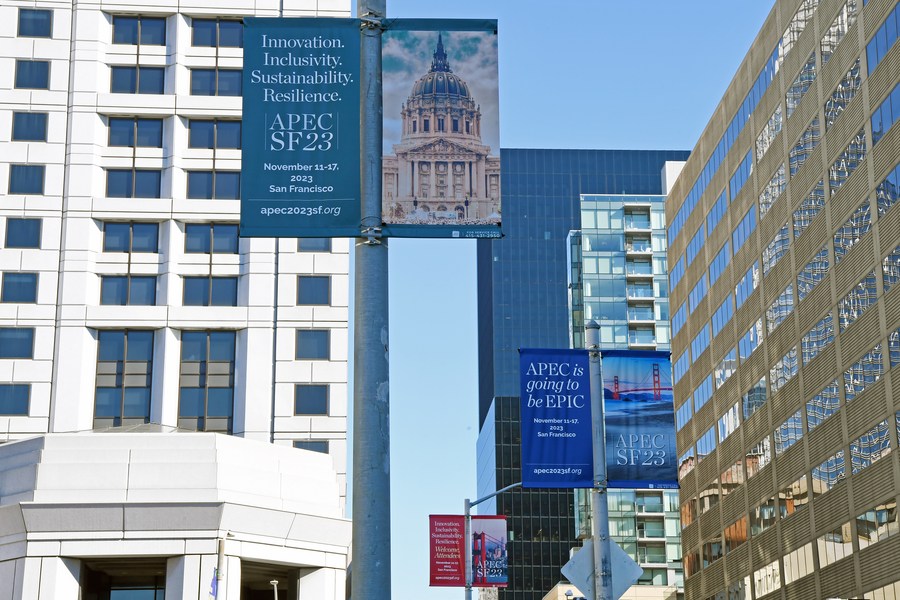
Photo taken on Nov. 12, 2023 shows the APEC 2023 signs in front of the APEC 2023 International Media Center in San Francisco, the United States. (Xinhua/Li Rui)
Why Chinese President Xi Jinping is promoting an innovation-driven, open, green, and inclusive future of APEC?
SAN FRANCISCO, Nov. 17 (Xinhua) -- Chinese President Xi Jinping on Friday urged leaders from the Asia-Pacific Economic Cooperation (APEC) members to promote innovation-driven, open, green and inclusive development.
Here is what Xi said and why it serves as a visionary blueprint for the region's future.
ON INNOVATION-DRIVEN DEVELOPMENT
"Innovation is a strong driver of development. We should follow the trends of scientific and technological advancement, more proactively promote exchanges and cooperation in science and technology, and work together for an open, fair, equitable and non-discriminatory environment for scientific and technological progress," Xi said here when addressing the 30th APEC Economic Leaders' Meeting.
Xi's call for innovation-driven development acts as a rallying call for the region to harness the transformative power of technological advancements.
According to a projection by the World Economic Forum, 70 percent of the global economy will be made up of digital technology over the next decade.
There is now a new concept of supply chain internationally, and China is crucial in providing technology-oriented, more cost-efficient solutions in this regard, said Mahmood Khalid, senior research economist from Pakistan Institute of Development Economics.
In a world where progress hinges on the ability to adapt and innovate, APEC members should be challenged to become architects of change. This emphasis on innovation is not only a nod to the technological revolution but also a recognition of its pivotal role in steering economies toward sustainable and inclusive growth.
ON OPENNESS IN DEVELOPMENT
"As manifested by the Asia-Pacific experience, an economy thrives in openness and withers in seclusion," Xi said, urging his Asia-Pacific colleagues to oppose any attempt to politicize, weaponize, or impose security implications on economic and trade issues.
"We must remain unwavering to promote regional economic integration, accelerate the building of a Free Trade Area of the Asia-Pacific, fully implement the APEC Connectivity Blueprint, and share in the opportunities of open regional development," Xi said.
APEC is a group of economies along the Pacific Ocean's rim "committed to treating each other as equals in order to promote trade," said Victor Gao, vice president of the Center for China and Globalization, a Beijing-based non-governmental think tank.
Politicizing trade issues and putting an ideological spin on fair and equitable trade is posing a threat, warned Gao, also chair professor of China's Soochow University. He urged leaders from the region to do their best to make sure that APEC remains a cooperation-oriented organization with the sole goal of promoting trade with each other.
Countries in the Asia-Pacific region have benefited from bilateral cooperation with China, said former Peruvian Ambassador to China and Asia expert Juan Carlos Capunay.
As the world's second-largest economy and the largest trading partner for many APEC members, China never attaches political conditions to its cooperation with others, said Capunay, expecting China to continue to be a significant force supporting free trade and opposing protectionism.
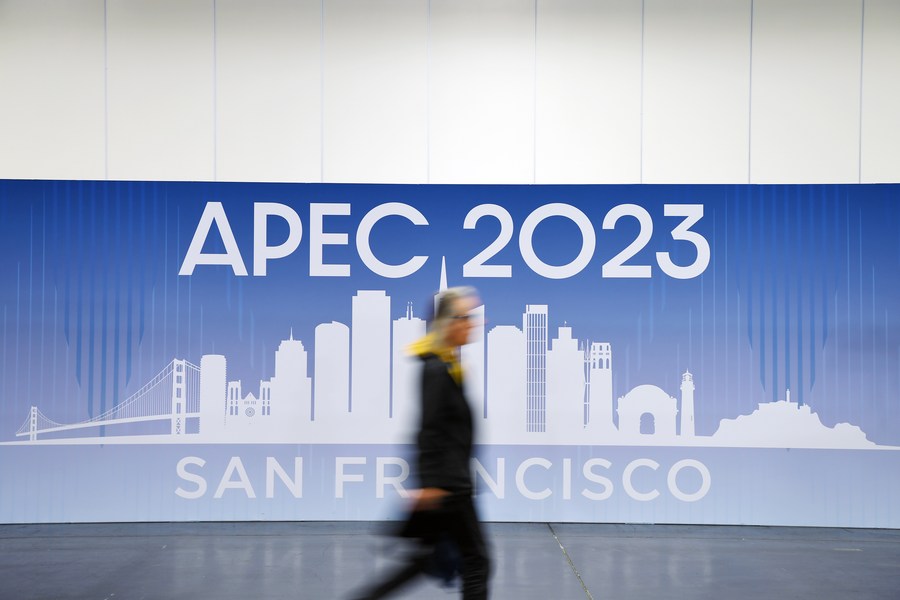
A journalist walks past a poster at the APEC 2023 International Media Center in San Francisco, the United States, on Nov. 14, 2023. (Xinhua/Li Rui)
ON GREEN DEVELOPMENT
Given the increasingly grave challenges, APEC should accelerate the transition to green and low-carbon development, and see to it that reducing carbon emissions and mitigating pollution operate in parallel with expanding green transition and promoting economic growth, Xi said.
"We must deliver on the Bangkok Goals on Bio-Circular-Green (BCG) Economy, making 'green' a defining feature of Asia-Pacific growth," he added.
Noting that China remains determined to pursue green development that prioritizes eco-environmental conservation and protection, Xi said that China has put forward initiatives for cooperation between APEC member economies in green agriculture, sustainable city development, green and low-carbon energy transition, and marine pollution control and prevention.
Thailand is committed to the application of green energy, said Wirun Phichaiwongphakdee, director of the Thailand-China Research Center of the Belt and Road Initiative, noting that in recent years, many Chinese new energy vehicle companies have invested in and established factories in Thailand, bringing new energy vehicle technology and management expertise to the country.
This has enabled Thailand to gradually develop into the manufacturing hub for new energy vehicles in Southeast Asia, he added.
China has spared no effort in lifting its people out of poverty while also placing a strong emphasis on environmental protection, said Ang Teck Sin, a political commentator in Singapore.
Actively promoting green technology and fostering innovation in sustainable industries, China has witnessed a surge in scientific and technological advancements, said Ang, adding that all these tangible efforts have visibly elevated the standard of living for the Chinese people.
ON INCLUSIVE DEVELOPMENT
Noting that global development now faces severe challenges and the development divide is getting wider, Xi called on all parties to "develop greater synergy in our development strategies and work together to resolve the global development deficit."
"China welcomes participation by all parties in the Global Development Initiative to deepen cooperation in poverty reduction, food security, industrialization and development financing and build a global community of development so that the fruits of modernization are shared by people across the world," Xi said.
"APEC is useful because it is an inclusive arrangement," said James Laurenceson, director of the Australia-China Relations Institute.
"It includes all the big players ... as opposed to some other arrangements which are more exclusive, such as the Indo-Pacific Economic Framework (IPEF)," Laurenceson said.
As part of U.S. "Indo-Pacific strategy," the IPEF, together with the so-called "Chip 4 Alliance," constitutes a "parallel system" of supply chain alliances that exclude China.
"The mood of the region is that (deliberately carving out China) is not a particularly helpful approach," said Laurenceson, stressing that the Asia-Pacific economies want to see major players of the region focus on inclusive arrangements rather than exclusive ones.
In the era of globalization, unilateralism and exclusionary thinking have "all harm and no benefit," said Kazuteru Saionji, a visiting professor at Higashi Nippon International University.
Given the expansion in China-U.S. and China-Japan trade during the last 40 years, it is clear that China's development has benefited not just itself but also developed countries, said the scholar.
International cooperation, whether bilateral or multilateral, should respect variety and involve as many compromises as possible, he said, adding that this exemplifies the ancient Asian concept of "seeking common ground while preserving differences."
Photos
Related Stories
- Xi returns to Beijing after China-U.S. summit, 30th APEC Economic Leaders' Meeting
- Center of gravity has moved from Atlantic to Pacific: Prologis CEO
- Philippines seeks to promote local small-scale sellers via TikTok
- APEC Economic Leaders' Meeting concludes with adoption of Golden Gate Declaration
- APEC Economic Leaders' Meeting pledges to promote interconnectedness, building resilient economies
Copyright © 2023 People's Daily Online. All Rights Reserved.






